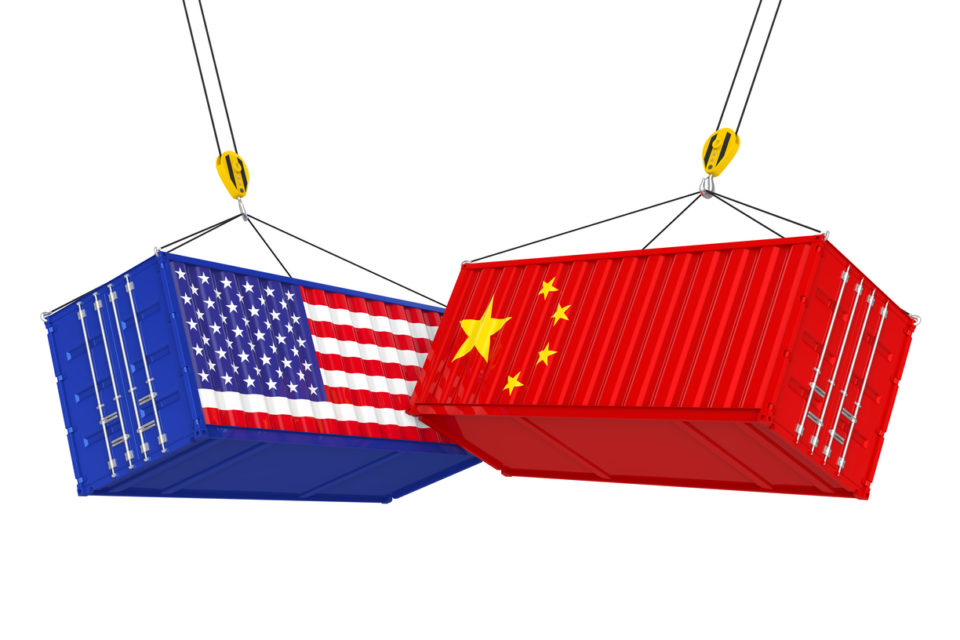Chappaqua’s Kahan: Trump, Trade Wars & Your Portfolio

Trump, Trade Wars & Your Portfolio
 Chappaqua’s Kahan: Trump, Trade Wars & Your Portfolio: In our second-annual Mid-Year Investment Review, Chappaqua’s Scott Kahan talks about Trump, trade wars & your portfolio with What To Do, Scott is a Certified Financial Planner and President of Financial Asset Management Corp, in New York City and Chappaqua.
Chappaqua’s Kahan: Trump, Trade Wars & Your Portfolio: In our second-annual Mid-Year Investment Review, Chappaqua’s Scott Kahan talks about Trump, trade wars & your portfolio with What To Do, Scott is a Certified Financial Planner and President of Financial Asset Management Corp, in New York City and Chappaqua.
Let’s start off with Morgan Stanley’s recent warning of a stock sell. Are we at a tipping point?
It’s a conversation that’s been going on for a while. Corrections are a normal thing and they’re very hard to time. Remember that the market sold off in January but it bounced back. The more certain narrative than a sell-off is that volatility has returned to the market. The prospect of trade wars, and it’s potential negative impact on growth, is one of the uncertainties that the market is trying to assess – so calls for a sell-off are not surprising.
In January you talked about being in the middle innings of a slow growth recovery. Do you still feel that way?

We’re getting closer to the later innings. Remember this recovery started in 2009 after a near Depression and is now over nine years old. It’s the second longest in US history. It’s been a slow growth recovery and we were due to break out into a faster pace at some point. The tax cuts were likely the stimulus to finally get us there. As we all have seen Q2 GDP growth hit 4.1%, the fourth best quarter in the past 10 years. Questions remain, however. Is this a sugar high? How long can it last.
What is the market waiting for next?
Moving forward we’re going to see interest rates climbing a bit and we’re going to see volatility in the market. I’m not convinced

we’re going to see a major sell off. There are signs of a slow down but it’s like we were on the highway going 90 miles an hour and now we’re going 80. We are seeing weakness in the California real estate market. New York and other high tax states are sure to struggle with the loss of home tax deductions.
But the biggest variable is Trump’s tariff initiatives. Will we have a trade war or will it fizzle out. Who knows? Trump has a habit of creating a lot of bluster and then backing off. But we already see negative signs in the Midwest. Farmers are getting hurt. We’re seeing layoffs in manufacturing. If we’re going to have a trade war, the best time is in a growing economy. But if it drags on it will impact GDP. The economy may continue to grow but if the market foresees a lingering trade war it will tell us with a sell off.
What do you foresee for interest rates?
Unpredictable. Rates started to climb in the past year or so, something that has been expected for some time, I think we’ll see at least one more – possibly two but the Fed will be cautious. If growth continues at a fast pace we’ll see two. If the tariffs issue takes the top off the kind of growth we’ve seen in the past quarter than they will probably hold back and we’ll see just one.
Trade wars, interest rates, it all speaks to the need for financial planning.
 Yes. The bottom line is, people can worry about the markets and the economy all day long but if you have clearly defined goals that you have set for yourself you don’t have to get caught up in the day-to-day chatter.
Yes. The bottom line is, people can worry about the markets and the economy all day long but if you have clearly defined goals that you have set for yourself you don’t have to get caught up in the day-to-day chatter.
When we work with our clients on their financial planning we talk about the journey of their lives. Where are you going? Are you saving for a house, college or retirement. And when do you need to get there? And we tell them, when markets change your journey doesn’t. The destination and the timeline is still the same.
Are you seeing any special sector opportunities in the market?
Right now I don’t see any particular area of the market that is particularly over or under valued. So we’re just concentrating on our client’s allocations and diversification within their plans.

When we build a portfolio with our clients we set up allocations in equities and fixed income, international and domestic, small cap and large cap based on their financial planning needs – their journey. If their allocations are in place before markets swing than selloff may provide them a chance to re-allocate. We review our client’s portfolios during the year and rebalance as needed. If a client’s allocation calls for a 60/40 split and stocks go on a run, their equity positions may run up to 65-70%. Then we pare back.
We will pare back a few layers to see, within their equity positions, if there are bloats in certain sectors. If small caps have run up from, say, a 10% allocation against their plan to 12-15% than that’s where we start to pare back.
That’s how you take the emotions out of investing?
 Yes, it all gets back to my theme of taking the emotions out of investing and it all becomes a formula that can guide you through the ups and downs. People tend to focus too much on the short-term results of their portfolio. What’s more important is the status of their portfolio against their financial planning needs and goals. I’ve been in this market 30 plus years and we’ve seen a lot of downturns and people who develop a sound financial plan and take the time to stick to it come out okay. The focus should be on the financial planning process and your life’s journey, not the ups and downs of the markets.
Yes, it all gets back to my theme of taking the emotions out of investing and it all becomes a formula that can guide you through the ups and downs. People tend to focus too much on the short-term results of their portfolio. What’s more important is the status of their portfolio against their financial planning needs and goals. I’ve been in this market 30 plus years and we’ve seen a lot of downturns and people who develop a sound financial plan and take the time to stick to it come out okay. The focus should be on the financial planning process and your life’s journey, not the ups and downs of the markets.
Financial Asset Management Corporation has provided fee-only financial planning and wealth management services for individuals and small businesses in the Tri-State area since 1986. They serve 150 clients and manage over 200 million dollars in assets. FAM Corp. President Scott Kahan is a Certified Financial Planner professional. (Financial Asset Management Corp., 26 South Greeley Avenue, Chappaqua, NY, (914) 238-8900; www.famcorporation.com)

















